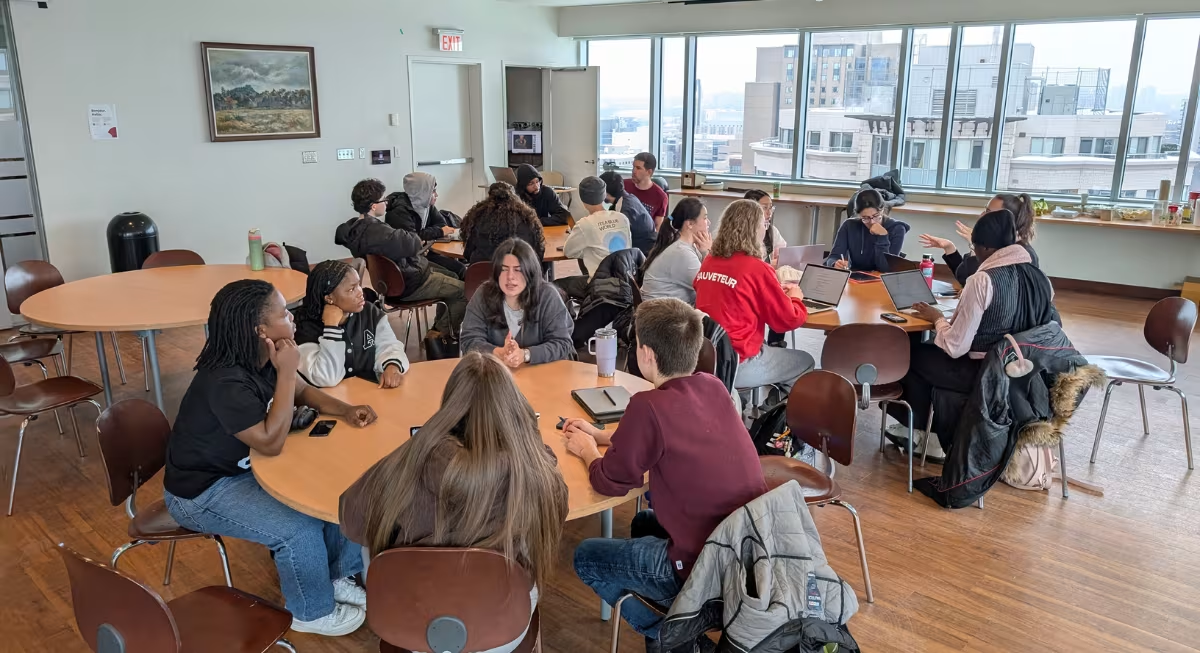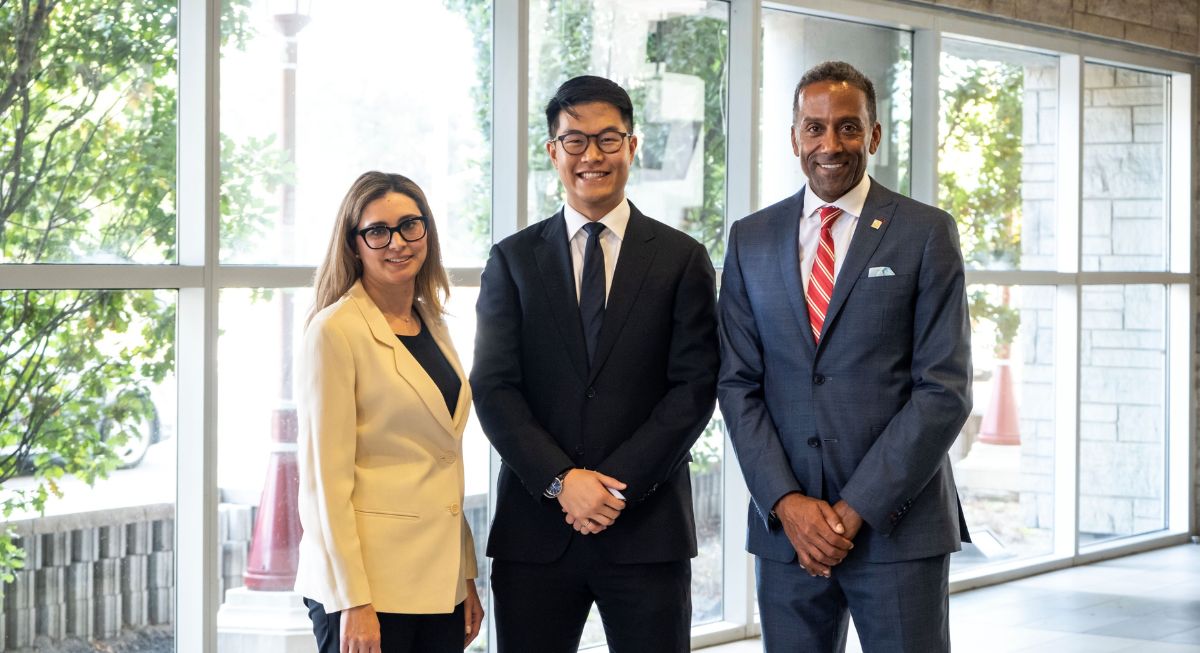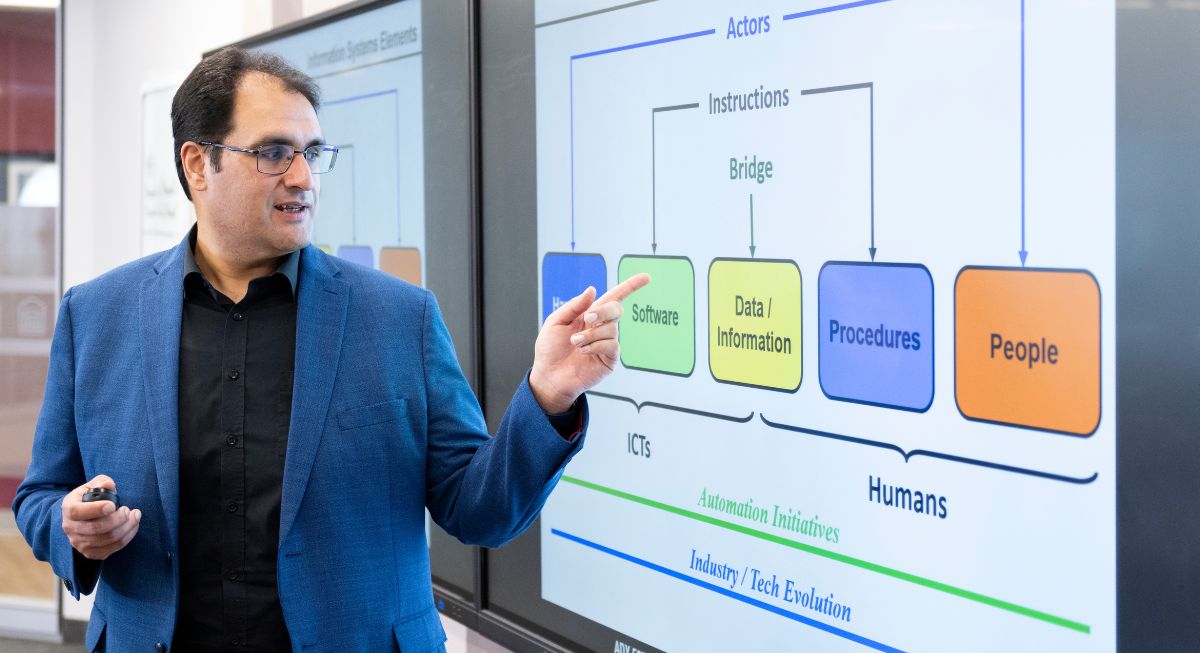Mayur Joshi, assistant professor of Information Systems at the Telfer School of Management, is co-editor of the Research Handbook on Artificial Intelligence and Decision Making in Organizations, published in March 2024.
More and more, organizations are integrating artificial intelligence (AI) into their decision-making processes. It might seem simple enough, but there’s more to it than running an algorithm: the process begins with simple questions like “Should our organization use AI?” and involves many other decisions along the way before organizations actually start using AI to make decisions.
Old news, new ways

AI has been around since the 1950s, but its use was largely limited to technological domains like computer science. These days, its use is being explored in many contexts: robotic surgery and AI-assisted diagnoses in healthcare, for example, or automated financial evaluations in banking, as well as the ever-popular ChatGPT.
Given the recent advancements, it is increasingly becoming the focus of research among management scholars. A significant amount of research on the topic focuses on developing the tools (i.e., models and algorithms) as well as the adoption of these tools. Professor Mayur Joshi has identified an opportunity to extend this research by examining the decision making implications of AI, a topic that has remained underexplored.
Read the press release about Professor Joshi’s most recent study, Organizations as Digital Enactment Systems: A Theory of Replacement of Humans by Digital Technologies in Organizational Scanning, Interpretation, and Learning, published in the Journal of the Association for Information Systems.
To better understand and explain these dynamics, Professor Joshi and his colleagues got to work on a new resource to help organizations navigate this process: Research Handbook on Artificial Intelligence and Decision Making in Organizations. Edited in collaboration with Ioanna Constantiou, Full Professor, Department of Digitalization, Copenhagen Business School, and Marta Stelmaszak, Assistant Professor of Information Systems, The School of Business, Portland State University, the handbook provides a comprehensive analysis of the various issues and complexities associated with the integration of AI technology in organizations.
As the editors sorted through the chapters submitted by leading academics, they discovered three broad, interconnected themes:
Making decisions with AI
Making decisions about AI
Implications of decision making with AI
The first theme, making decisions with AI, was the obvious one, but the other two are foundational for organizations. Professor Joshi explains: “In order to examine AI decision-making, we cannot focus solely on decisions being made with AI. We need to understand the phenomenon in conjunction with how we make decisions about AI and the implications of such decisions on other aspects of the organization. For example: If you choose the wrong tool for your company, then start using that wrong tool to make decisions, you will get bad results.”
Broader knowledge mobilization for broader impact
Why write a book rather than scientific articles? “Our goal was to complement what our leading journals are publishing on AI,” shares Professor Joshi. Books are a quicker way to make research-based information available to a broader public, and they also allow for sharing of more provocative ideas. This handbook targets students and academics as well as practitioners such as business managers and AI engineers. It can serve as a guide for organizations looking at implementing AI, as well as a textbook in a classroom.
Watch Professor Joshi and his co-editors summarize the handbook in a short video.











